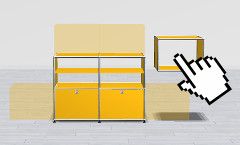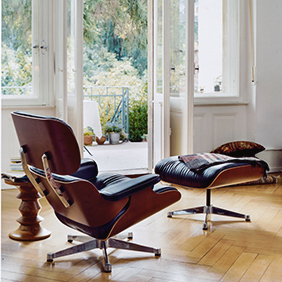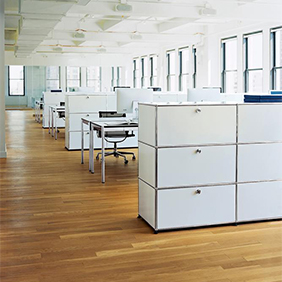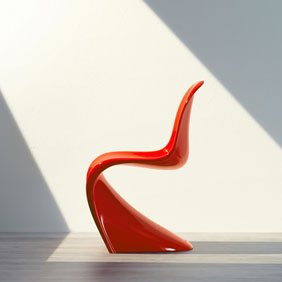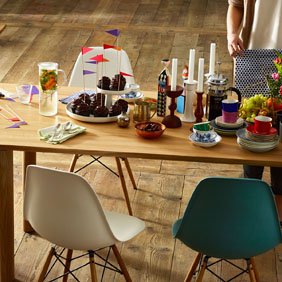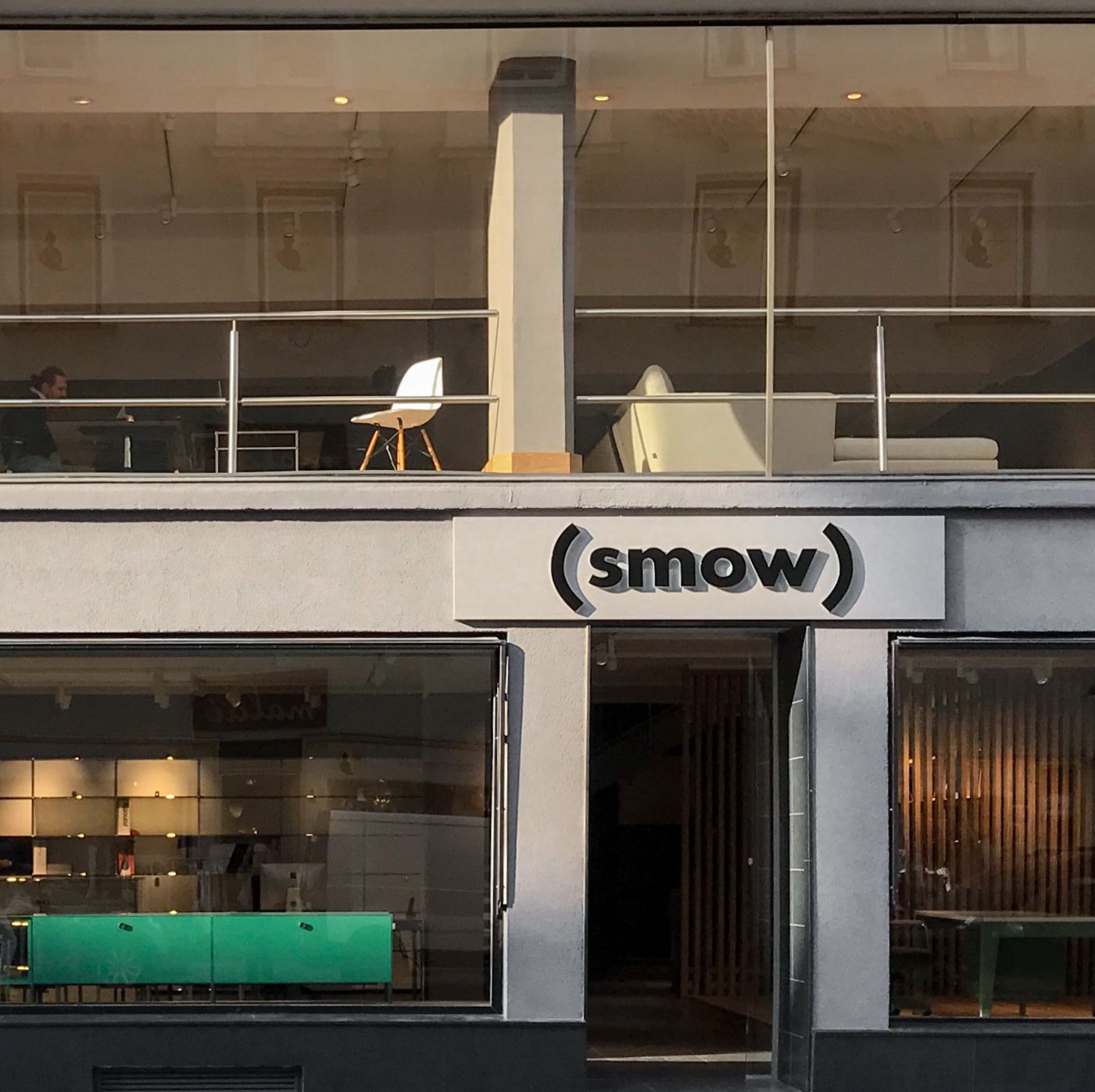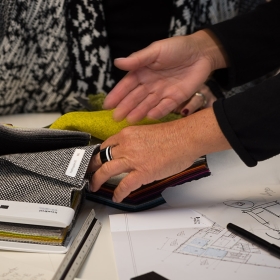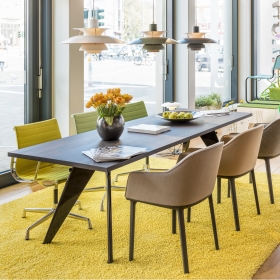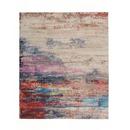Home Textiles
Cushions and carpets for more comfort
Whether homely carpets, decorative pillows and blankets, or noble curtains: high-quality home textiles fulfil numerous functions in the interior and play a decisive role above all in terms of comfort and individual taste. And among designers home textiles is an area of particular creativity: among, for example, the carpets one finds models with elaborate, colourful patterns in addition to noble monochrome variants in subtle tones. Design carpets, such as the hand-made rugs by the manufacturer Gan, not only ensure the highest level of living comfort and cosiness, but also set decisive aesthetic accents in the interior. The same also applies to accessories such as blankets and pillows. Here too, the material is particularly important: haptics and structure play an equally important role as colour and pattern. These aspects are perfectly combined, for example, in the Vitra Colour Block Blanket by Hella Jongerius, which combines fine highland wool with first-class workmanship and a refined, bright colour concept.
Care and disinfection of textiles in context of Corona
Studies indicate that the risk of becoming infected with the coronavirus through textiles is low; however, in order to ensure hygiene, textile sand other substances should be cleaned regularly, while always taking into account their natural properties. Wool fibres, for example, are naturally water and dirt repellent and have a surface layer that is not very attractive to microbes and it is known that wool has antimicrobial properties that inhibit the growth of microorganisms such as mould, mildew, bacteria and viruses. For hygienic reasons, wool should always be kept dry. Other materials such as polyester, polypropylene and polyacrylic fibres are generally non-susceptible to microbial growth, for example, thanks to its hydrophobic properties bacteria densities on the Kvadrat textile Trevira CS are reduced by more than 20% without additional treatment. Where a textile is to be disinfected, it should be cleaned thoroughly in advance.
Do I have cause for concern if I touch textile surfaces in the office or at home?
No. But be sure to wash your hands after touching a textile surface and do not touch your face beforehand.
Can the coronavirus (COVID-19) spread to textiles?
No, the coronavirus can only spread with the help of a host. A textile surface is not a suitable host.
How long does the virus survive on textiles?
So far there has been no study that the virus survives longer on textiles than on other surfaces.
I disinfected my hands with an ethanol-based hand disinfectant. Can I damage textiles if I touch them afterwards?
No, hand disinfectants contain less ethanol than a surface disinfectant, so you won't damage a textile.
Can I use ethanol/alcohol based disinfectants to disinfect textiles?
Yes, you can use ethanol/alcohol-based disinfectants (70-85%) to wash textiles made of polyester, wool or e.g. B. from the Trevira CS material from Kvadrat.
Can I use chlorine-based detergents to clean textiles?
Yes, you can use chlorine-based cleaning agents (1000-1200 ppm) for textiles made of polyester or Trevira CS. Alternative products should be used for wool textiles
What type of disinfectant should I use for textiles?
You can find numerous commercially available disinfection sprays and agents in drug stores or pharmacies.
How do I use disinfectants on textiles?
It is essential to follow the instructions of the manufacturer of your textiles and the instructions on the disinfectant.
Can I use a disinfectant spray for textiles or do I need another agent?
Both disinfectant sprays and agents that are applied with a cloth can be used. If you use a cloth, it should only be slightly damp and never wet. Let the textiles dry before use.
How long do the textiles have to dry?
Materials such as polyester and Trevira CS dry within a few minutes. Textiles made of wool dry at different rates depending on room temperature, air humidity and the amount of detergent.
At what temperature can I wash Kvadrat textiles?
Textiles made of polyester and Trevira CS can be washed at 60-80 °C. Textiles made of wool should not be washed.
Individual consulting an project planning with smow
We would be pleased to advise you on the selection of your home textiles for your very personal furnishing project. Our smow stores have numerous fabric samples as well as planning tools for curtains and are happy to support you from planning to implementation. Whether for a residential, office or public area, just share your ideas with our furnishing consultants and find textile solutions for all living spaces at your local smow store. You can contact our planning department from Monday to Friday between 8 am and 7 pm via +49 (0) 341 2222 88 66 or mail projekt@smow.de.

